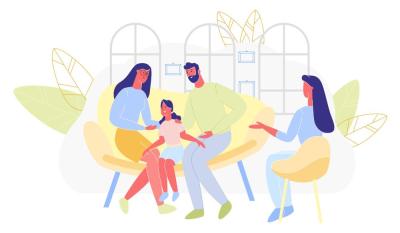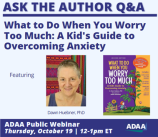Let’s Go To SPACE
Let’s Go To SPACE

What is SPACE?
Let's dive into a topic and treatment protocol that's super important yet often overlooked or dismissed for child focused therapy – SPACE treatment. Nope, we're not talking about NASA here, but something just as cool. SPACE stands for Supportive Parenting for Anxious Childhood Emotions. SPACE treatment, developed by Dr. Eli Lebowitz at the Yale Child Study Center, is a game-changer for parents navigating the trickiness of childhood anxiety. SPACE is all about empowering you, the parents, to be a rock-solid support system for your child dealing with anxiety. Unlike traditional methods that focus directly on the child, SPACE turns to the parent’s behavior and how it can be adapted to reduce the child’s anxiety. It's like equipping you with a superpower for parenting anxious children!
The Research
Dr. Lebowitz’s research shows that how parents respond to their child’s anxiety significantly impacts the child's experience of it. Sometimes, without even realizing it, we might be reinforcing our child’s anxiety. SPACE teaches us to offer support in ways that encourage children to face their fears rather than protecting them from it.
Studies have shown that SPACE is incredibly effective. One study by Dr. Lebowitz and his team found that SPACE significantly reduced children's anxiety symptoms – and get this – it was as effective as direct child-based therapy! That's huge, right? It means that by adjusting our (the parents') responses, we can make a real difference in our children’s lives.
Why SPACE?
As a therapist with a passion for helping folks with OCD and anxiety, I see the impact of anxiety on families daily. SPACE is a breath of fresh air because it acknowledges that parents are a part of the solution. By changing how they respond to their child’s anxiety, parents can create a supportive environment that encourages bravery and independence.
How SPACE works?
This unique approach focuses on the role of parents in a child's anxiety treatment and how changing their behavior can help their child. Instead of working directly with the child, SPACE empowers parents with strategies to help their kids manage anxiety, through the parent’s behavior change. Incorporating SPACE into daily life involves incremental steps to create change. Parents learn how to provide support to their child, what is anxiety, how to recognize and reduce accommodation, and communication skills to facilitate change.
As a therapist specializing in anxiety and OCD, I see firsthand how critical a supportive environment is for children grappling with these challenges. SPACE offers a compassionate, evidence-based path for parents. And remember, the goal isn't to eradicate anxiety – it’s about teaching our kids to manage it, with us cheering them on every step of the way! This approach empowers parents, supports kids, and strengthens the family as a whole.
If you’re looking to support your child's journey through anxiety, consider SPACE as a guiding star. It's about taking small steps together, and sometimes, that makes all the difference in the world. So, let's embrace this approach, equip ourselves with the right tools, and remember – we're not just parents; we're our children's biggest advocates and allies in their journey to overcome anxiety.
Questions…
- What have you tried to help your child with their anxiety?
- Have you heard of SPACE treatment?
- What is one way you have seen your child overcome their anxiety?
This post is presented in collaboration with ADAA's OCD and Related Disorders SIG. Learn more about the SIG.




















